This weekend’s Wall Street Journal Saturday/Sunday edition featured a big story on the economic force of women in the summer of 2023, termed “the women’s multiplier effect” — that women’s spending is a powerful force in the U.S. economy (and as it turns out, in Sweden’s economy as well).
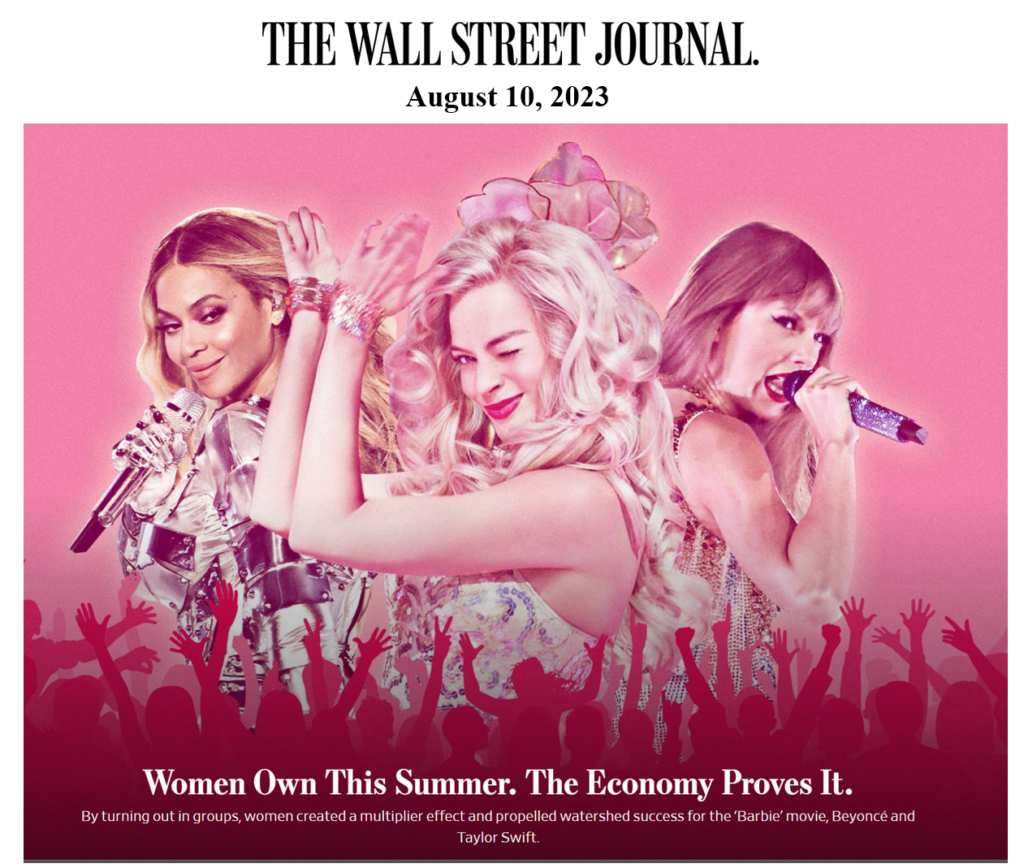
The article was titled, “Women Own This Summer. The Economy Proves It,” and featured a Photoshopped image in various shades of pink with Margot Robbie as Barbie in the center, flanked by Beyonce to the left and Taylor Swift to the right. I’m sharing that image with you here in Health Populi to set the stage for, of course, a discussion of WSJ’s data points through a health/care lens.
Sarah Krouse and Anne Steele, the WSJ journalists, tag-team doing a great job quantifying the women’s fiscal force, quoting Blair Kohan, an agent with UTA who represents Greta Gerwig, the Barbie movie’s director, saying, “Women have always been a deeply underestimated economic force.” They embrace shared experiences across generations, Sarah and Anne emphasized,
The proof-points in the women’s economic multiplier pudding are that, first, Barbie the movie has exceeded $1 billion of ticket sales, the most any female-directed film has achieved which earns Greta Gerwig a special place in women’s cinema history — and really women’s economic history as a particular phenomenon in a particular moment.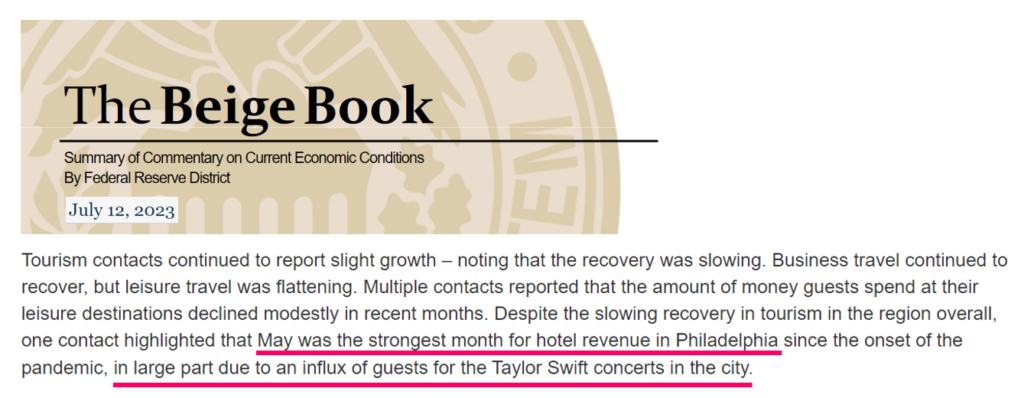
Add in the Beyond + Taylor Swift effects.
The vast majority of people who attended the Beyonce and Swift concerts bought more than two tickets apiece, and spending additional funds on new outfits to wear to the events, makeup and salon services, food and beverage in sync with the concert, and even plane fares and hotel rooms boosting the hospitality industry in new ways.
Michaels, the craft retail chain, has noted increased demand for beads used in alphabet bracelets as part of the Taylor Swift collective.
The Taylor Swift Eras Tour, slated to raise $1 billion when it’s completed, generating financial benefits to the towns she’s staged the event, giving those local economies a boost according to the Federal Reserve July Beige Book.
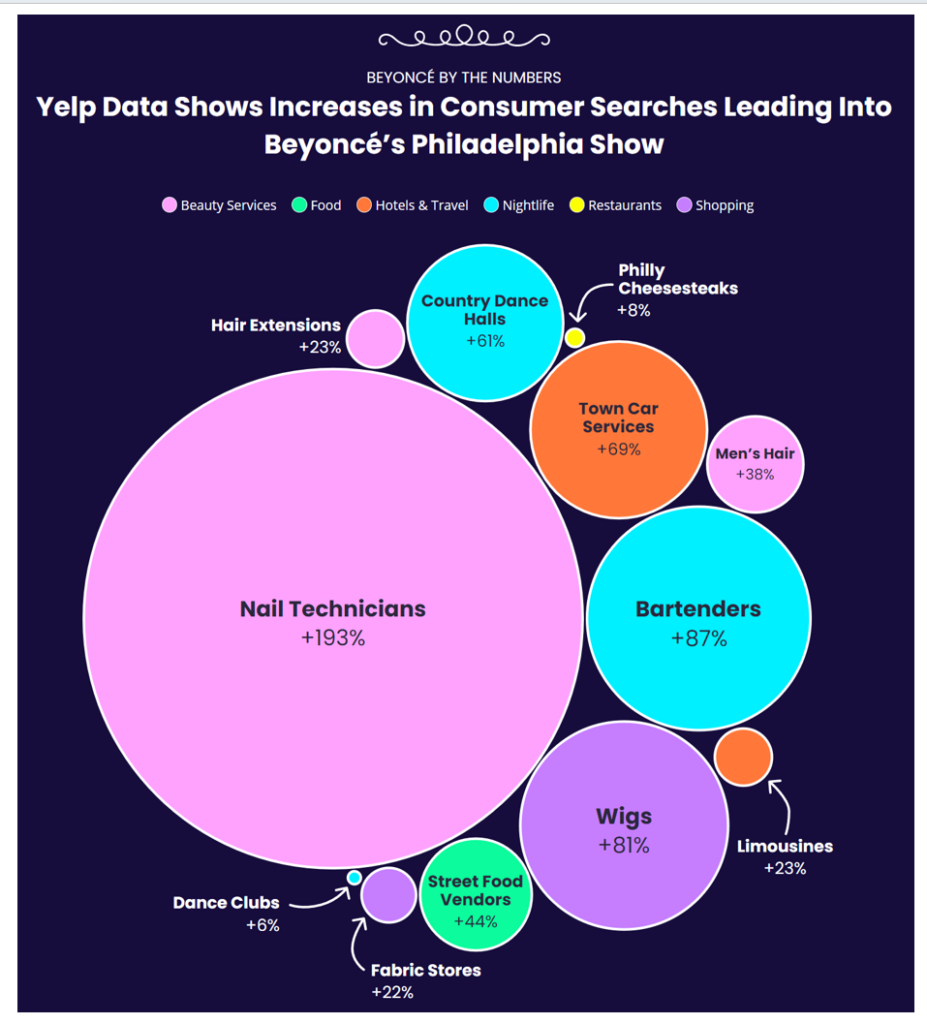
Beyonce’s Renaissance World Tour, too, has generated similar kinds of spending where Queen Bey has staged her phenomenal concerts, coined The Beyonce Bump by Yelp‘s own economic analysis.
The bubble chart here from the Yelp data illustrates the various categories of consumer spending that Beyonce’s tour in Philadelphia “bump up” locally — such as nail tech services, bartenders serving drinks, wigs, town car services, dance halls, and food vendors. [I particularly love, as a Philadelphia area citizen, that Philly cheesesteaks got an 8% bump during Beyonce’s tour time in town].
The WSJ writers call out, toward the conclusion of the nearly two-full-page article, that “many women feel powerless in the wake of the Supreme Court’s overturning of Roe v. Wade last year. The crowds at these cultural events showcase women’s agency and voice.”
And now, a spoiler alert — so if you don’t want to read my reveal of the very last 3 minutes of the movie, stop reading here until you do — or if you’re going to skip seeing the film, then read on.
Health Populi’s Hot Points: Among many online reveals about the last scene in Barbie, let me quote from Vulture’s explanation:
“Barbie ends on a high note as an unashamed Barbie (Margot Robbie) puts her reproductive health first. “I’m here to see my gynecologist,” our now-human titular character says in a business-casual outfit that dupes the audience into thinking she’s interviewing for a job or headed to her first day of community college, not going to a doctor’s appointment.”
As a Barbie aficionado from nearly the beginning of her launch, I know that the co-founder of Mattel was Ruth Handler, whose daughter’s name (in real life!) was “Barbara.” The doll was named for Ruth’s daughter, and Ruth herself is a kind of ghost-character in the Barbie movie (beautifully played by Rhea Perlman).
So Barbie goes to a gynecologist’s office in the last scene of the movie, checking in as “Handler….Barbara,” last name first….as the doll-turned-human-daughter of Ruth Handler.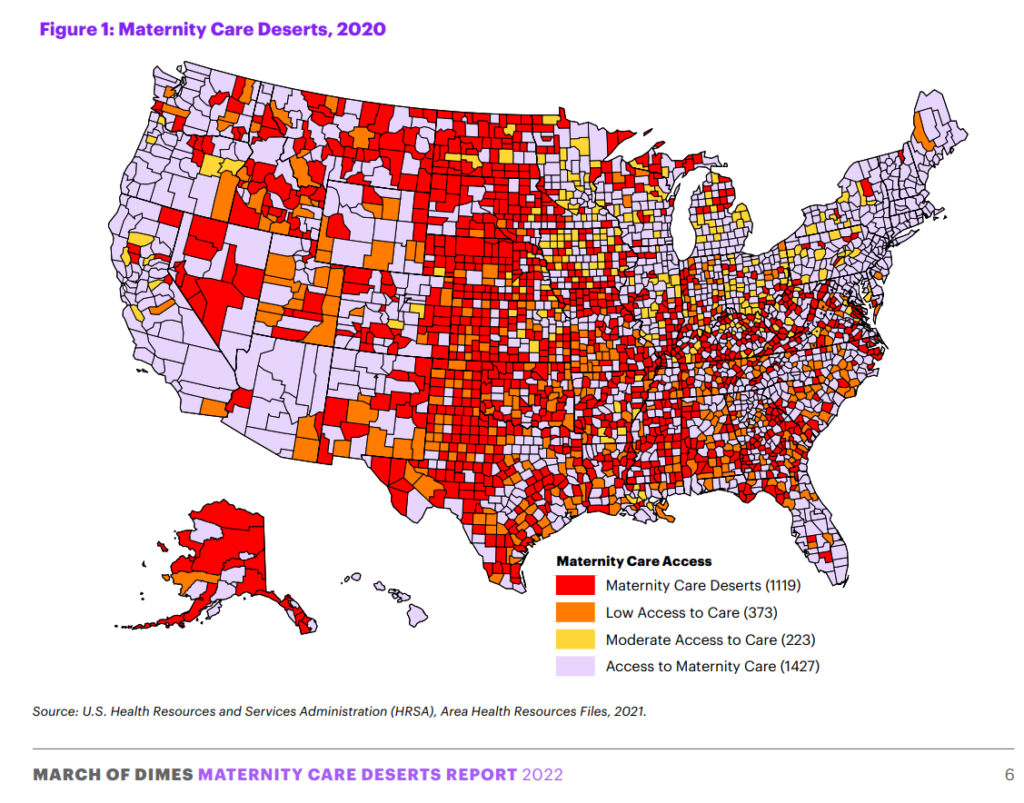
Barbie Handler was fortunate indeed to score an appointment with a gynecologist, seeing as in certain parts of the U.S., we’ve got a growing women’s health care desert challenge — that is, a shortage of health care providers on the supply side to care for women’s health. A new March of Dimes report found that 5.6 million women in the U.S. currently live in counties with limited or no access to maternity care services.
Just one example of this public health challenge is the state of Texas which has 15 million women who have, March of Dimes asserts, the “highest reproductive health vulnerability of all U.S. states.”
Reflecting on this last-moment pivot in the plotline, CNN interviewed Dr. Leana Wen to get the public health physician’s perspectives on this scene with a post-Dobbs view in mind.
“Having everyone see Barbie go to the gynecologist normalizes the experience. It solidifies the understanding that reproductive health is an integral part of overall health. I hope that will be one of the main takeaways from the scene, which is that every girl, every woman, every person who has female reproductive organs should seek regular preventive care to address their reproductive health.”
So right here, right now, women may “own” the summer of 2023 in terms of the economy, rising wages for many women and the joyful sharing of collective girlfriend experiences whether in cinema or concert-going.
But for health care, Baby, we’ve got a long way to go.
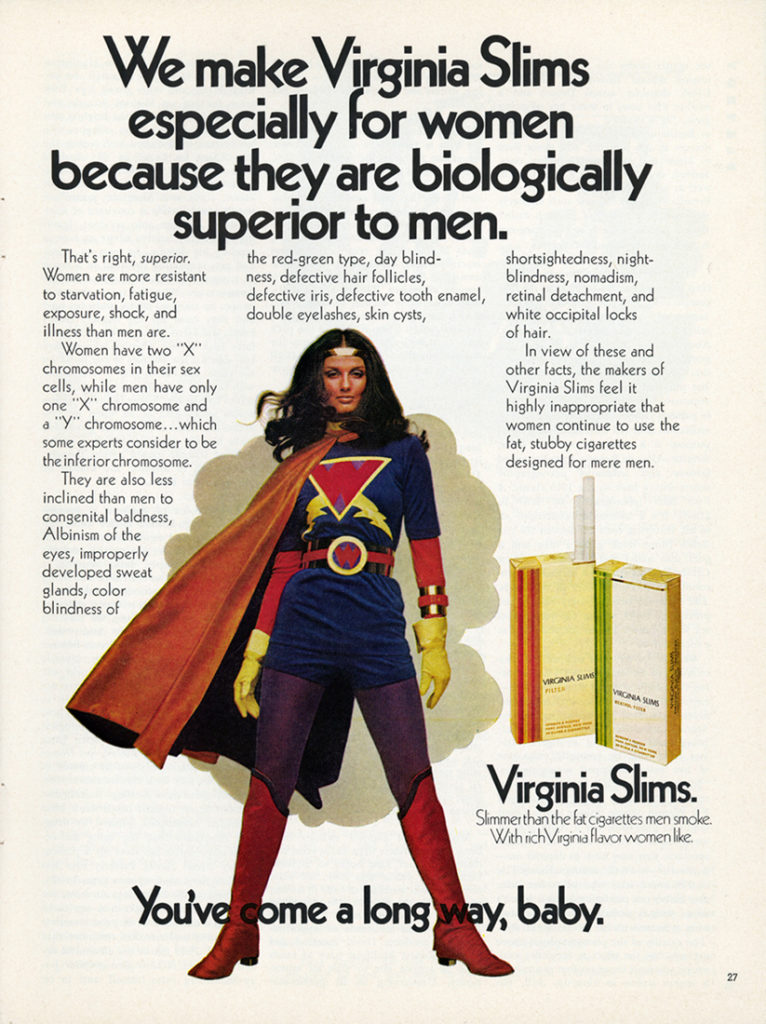
As I reflect on the mixed-moment of the women’s economy flexing its muscle vis-a-vis women’s health care deserts, I am reminded of the 1968 ad campaign for Virginia Slims cigarettes — exploiting (Stanford University’s word) the Civil Rights mantra, “You’ve come a long way baby.” Here’s one of the ads featured in the campaign.
Read the fine print accompanying this 1968 ad starring a faux Wonder Woman, talking about women’s two “X” chromosomes and the rationale for women’s healthy genetic codes to merit the design of new “slimmer” cigarettes.
Pop culture meets health and health politics this summer of 2023, noting that beyond Barbie, the movie, Taylor and Beyonce Swift have been contributing to local good works to bolster food access and education, sharing their wealth for well-being.
It may be a summer of love for women and consumer spending in 2023. But as for health care access, the gap between women who have access and those who do not is a very heavy pink tax indeed.


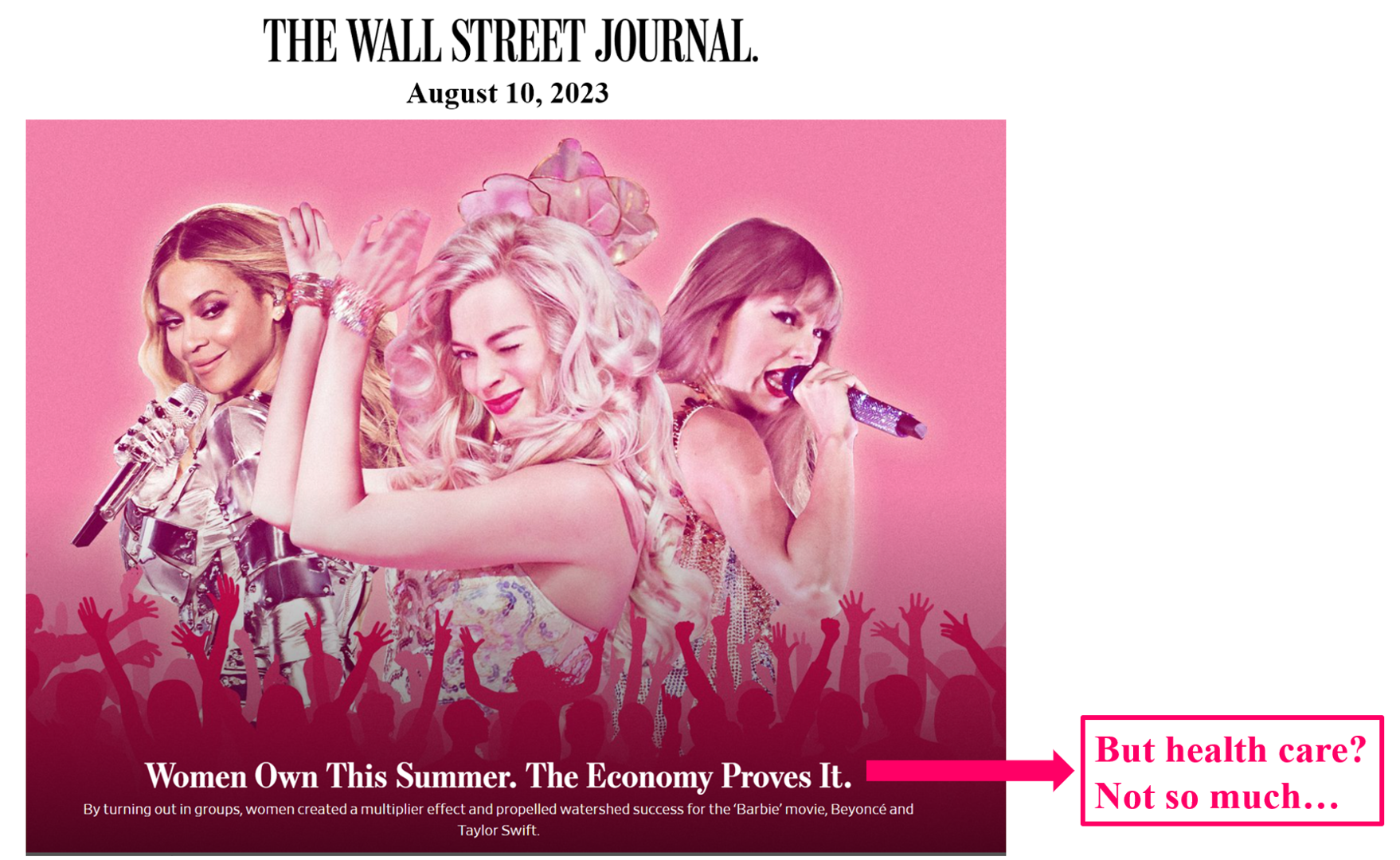


 I was invited to be a Judge for the upcoming
I was invited to be a Judge for the upcoming 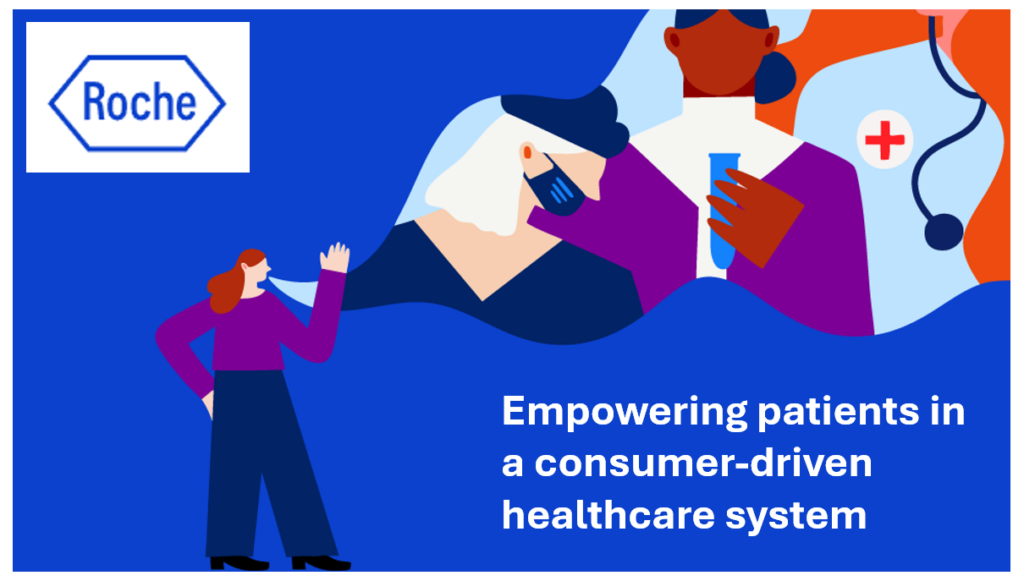 Thank you Team Roche for inviting me to brainstorm patients as health citizens, consumers, payers, and voters
Thank you Team Roche for inviting me to brainstorm patients as health citizens, consumers, payers, and voters  For the past 15 years,
For the past 15 years,